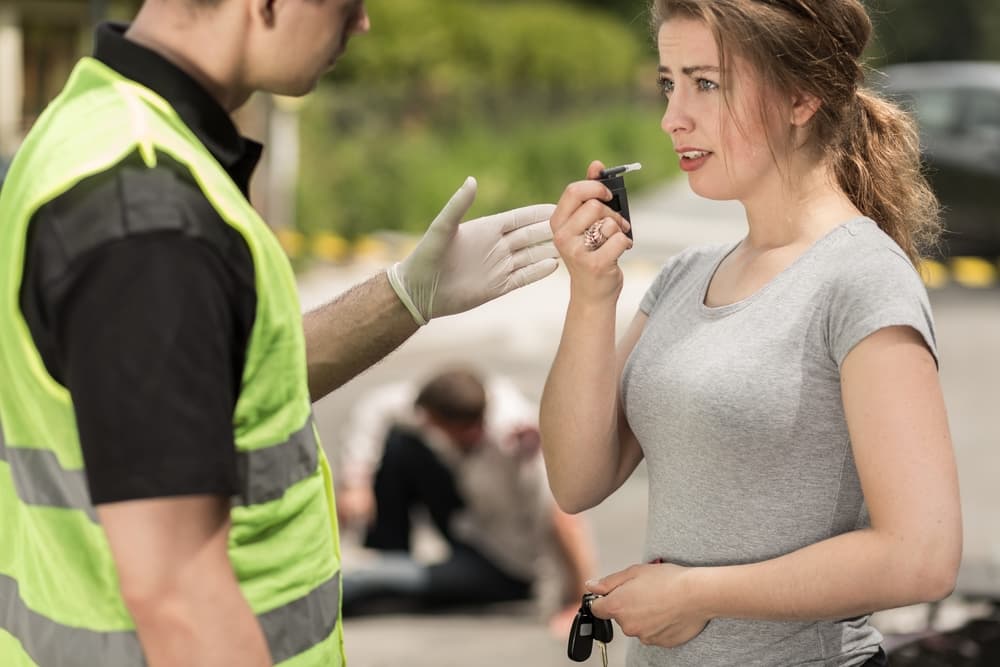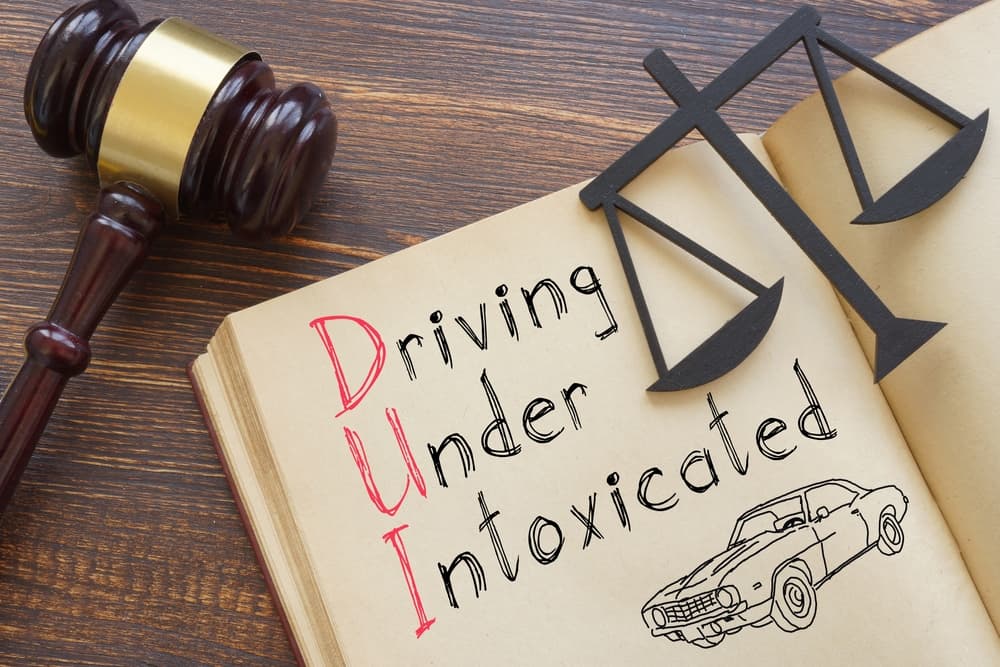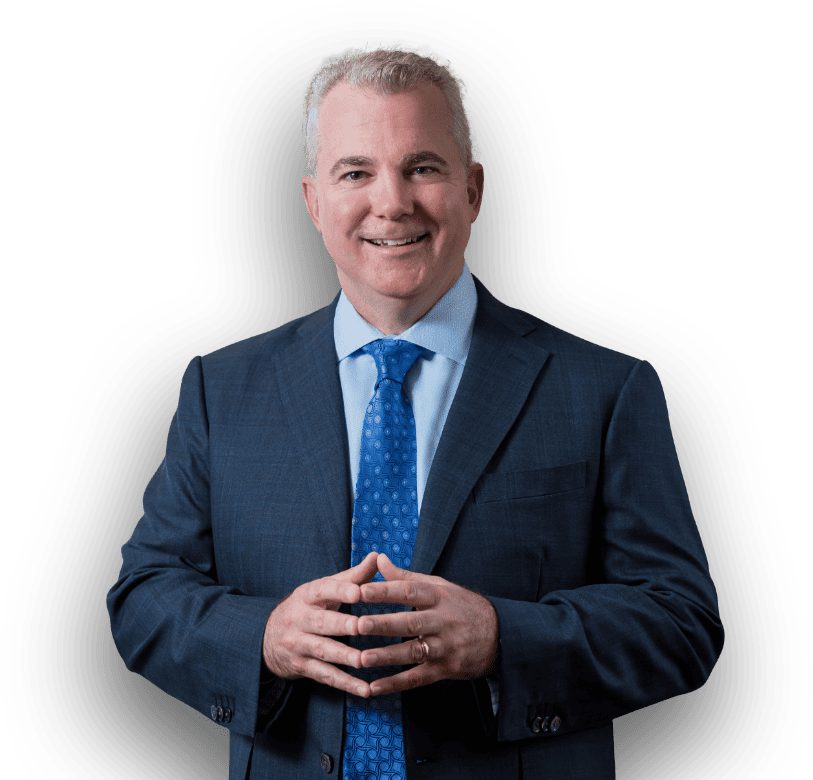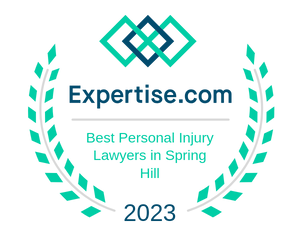Criminal punishment is not the only consequence that a driver faces when they have caused an injury in a drunk driving accident, and you deserve more justice than simply seeing the driver go to jail. You may also recover financial compensation when you have suffered an injury in a drunk driving accident.
Given the severity of drunk driving crashes, your compensation can be considerable. However, it is not automatic that you will get a settlement check for every dollar that you deserve right after the accident.
You may still need to take on a legal fight, even if it may be as clear as day to everyone involved that the driver was drunk.
Regardless of what happened, you must hire an experienced drunk driving accident lawyer to gather the evidence you need to prove your case. Then, they will work to get you all the money you deserve when another driver causes you harm and has little regard for the law and your well-being.
Schedule a Free Initial Consultation Today!
You Must Still Prove the Other Driver Caused the Accident

You still need to prove liability in a drunk driving case because the other driver is not automatically at fault for the accident. You must provide evidence that they were drunk or did something unreasonable under the circumstances (or both).
The criminal case operates independently of the civil process, and the only way the criminal process can help your civil case is if the driver pleads guilty to driving drunk. Since a driver knows that will mean automatic liability in a civil case, they will often plead no contest.
No Car Accident Case Is Automatic, No Matter What
Before receiving a settlement offer, you must show that the driver was responsible for your injuries because there is no such thing as an open-and-shut civil case. You have the burden of proof to demonstrate that the driver should be liable for what happened.
The good news is that your burden of proof is lower than the one the prosecutor must meet to win a conviction, and you must demonstrate your case by a preponderance of the evidence. You can still win a civil case, even if the prosecutor does not earn a conviction in the criminal case.
Act Promptly and Diligently to Gather Drunk Driving Accident Evidence
You only have a little time after any car accident to gather evidence, and it will be challenging to prove your case if you begin to investigate and assemble proof months later.
It becomes even more complicated when much of your evidence depends on complex tests, such as Breathalyzer results and blood tests.
Labs only keep specimens and test results for a while, and you need to know the conditions under which they hold the results. You can lose evidence quickly if you do not ensure the lab correctly preserved it.
The best way for you to act promptly is to hire an attorney as soon as possible after the accident. Lawyers always work with evidence and know how to work to ensure that the labs store it properly so it can be helpful during a trial.
Your Lawyer Will Gather Evidence
The critical thing to remember is that you do not have to gather evidence alone, and there is no reason why you should investigate your car accident.
First, you cannot handle your legal case because you are dealing with your injuries. Then, you lack the knowledge of the legal system to represent yourself effectively.
You can also acquire evidence in the hands of law enforcement. They care about getting a conviction, and your financial compensation is low on their list.
Evidence gathering is the role of your lawyer, and they will begin to learn what happened during your accident as soon as you hire them. A personal injury lawyer knows how to get evidence during the post-crash investigation and the discovery process of drunk driving litigation.
Field Sobriety Tests and Breathalyzer Results
In most cases, the officer administered a Breathalyzer test on the spot. When one gets a driver’s license, they give implied consent to law enforcement to conduct tests for intoxication.
Drivers will automatically lose their licenses if they refuse a Breathalyzer test; therefore, most drivers will allow officers to perform this test.
If a drunk driver was involved in an injury-causing accident, they may be aware of some of the criminal consequences that they can face and may refuse any form of sobriety tests.
You can access the results of a Breathalyzer test by submitting law enforcement’s test reports for your civil case.
If a criminal case is proceeding simultaneously, law enforcement may not willingly hand over records because it can make their case more challenging. Yet, they may not have a choice about whether to produce the test results if a court gets involved.
Suppose your case is contested and goes to trial. In that case, there is always a chance that the insurance company may try to challenge the evidence using arguments that cast doubt on the effectiveness of the machine or the custody of the test results.
However, insurance companies will rarely go that far in contesting evidence, especially if it is clear that their driver was drunk at the time of the accident.
Blood Alcohol Content (BAC) Evidence
The drunk driver may have suffered an injury in the accident and may have been taken for medical treatment after the accident due to their injuries. If the medical facility took blood tests after admitting the driver for treatment, the results will show the blood alcohol content.
Obtaining this evidence will be helpful to your case, and your attorney can get this evidence from the hospital or medical facility. The medical provider will ordinarily not turn this evidence over because HIPAA protects it. However, you can obtain the evidence through a court-ordered subpoena because the victim has a right to the test results for their civil case.
You Do Not Necessarily Need to Prove that the Driver Was Drunk
It can be helpful to your case when you can prove that the driver was drunk because their intoxication can prove their negligence. There is a concept called negligence per se in a personal injury case. If you can prove that someone else was breaking a law or regulation at the time of your accident, it can be evidence of their negligence.
It is still possible to be in a position for financial compensation even if you cannot prove intoxication. You can qualify for a settlement by showing that the driver was negligent (and not drunk). In a car accident case, negligence means that the driver did something considered unreasonable under the circumstances.
Chances are that a drunk driver did something considered unreasonable and may have:
- Swerved out of their lane and hit you
- Went the wrong way in traffic and hit you head-on
- Weaved in and out of traffic because they were driving too aggressively
- Sped at an excessive rate
- Failed to see another car in their vicinity
- Did not stop or slow down when another car was in front of them
Proving Intoxication Can Strengthen Your Legal Case

Insurance companies usually do not want any part of a drunk driving case before a jury. They know that you or your loved one will make a very sympathetic plaintiff by suffering an injury from a reckless and callous drunk driver. Drunk drivers give insurance companies some pause, and they may try to push the envelope with their conduct a little less.
The more egregious the circumstances, the more likely insurance companies will be reasonable in settlement negotiations. They may want to give you only some of what you deserve initially, but they are more likely to get closer to the actual amount you should get.
Punitive damages are rare in any car accident case, yet can occur when it involves a grossly negligent or reckless driver. Drunk driving fits these circumstances and then some.
Proof of intoxication gives you a stronger case.
Legal Consultation and Preservation of Evidence
You must contact an attorney as soon as possible after you have suffered an injury in a drunk driving crash. The first thing that your lawyer will do is review your case and explain to you how the legal process works. You need to understand the potential outcomes in your case before you file a claim or lawsuit because knowledge is power in any personal injury case.
Car accident evidence can disappear quickly, and you may begin to lose it days after the accident. The proof that someone was driving drunk can be lost forever if a lawyer does not take decisive steps to preserve it in short order.
Even if you cannot obtain test results for some time, it is vital to at least keep access to the evidence when needed.
One defense to lawsuits is that evidence has been tampered with or corrupted. There must be a chain of custody for the evidence that is reliable and allows the evidence into court.
If you do not have physical possession of the evidence, your lawyer can get involved to ensure the evidence is safe and protected against tampering or loss.
Then, once you obtain the evidence, your lawyer will document and organize it. You will need to present it in a claim or lawsuit in the most effective manner possible.
You Need a Car Accident Attorney for the Legal Process
Drunk driving civil cases are not as easy as they may seem. You must secure adequate compensation even if you have conclusive proof demonstrating liability.
You can be dealing with two different car insurance policies:
- The coverage for the responsible driver
- Your underinsured motorist coverage if the other driver does not have enough insurance to pay for your damage
Both insurance companies will try to make your life harder, and the last thing they want is to pay you the total amount you should get. Your lawyer is the only person on your side, standing in the face of the insurance company apparatus devoted to costing you money.
If financial concerns stand between you and getting a car accident lawyer, you can put them aside immediately because you do not have to spend money on a lawyer.
Instead, you will sign an agreement that states the lawyer will receive payment from the proceeds of your case should you win. You will not have to dip into your pocket to pay your lawyer; thus, there is no risk in getting the legal representation you need.
What to Expect From Your Free Consultation With a Car Accident Lawyer
During your free consultation with a car accident lawyer, you can expect a personalized and informative session tailored to your specific case. The attorney will attentively listen to your account of the accident, inquire about injuries, and assess available evidence.
They will explain relevant laws, discuss potential legal strategies, and address any questions or concerns you may have.
This initial consultation is an opportunity for you to gauge the attorney's experience and determine if they are the right fit for your case.
You'll gain insights into the legal process, your rights, and the potential outcomes of your case. Additionally, the lawyer may outline the next steps in pursuing compensation, whether through negotiations with insurance companies or legal action.
The free consultation is a crucial first step toward understanding the viability of your drunk driving accident case and obtaining the guidance you need for a successful resolution after a car accident. Seek your case evaluation today.
The sooner you call, the stronger your case might be, and the sooner you receive peace of mind that a skilled professional is handling your case and holding the drunk driver accountable.
FAQs
Does insurance pay for drunk driving accidents?
Yes, insurance typically pays for damages caused by a drunk driving accident.
- If you were hit by a drunk driver, their liability insurance should cover your losses.
- If the drunk driver was uninsured, you may use uninsured motorist (UM) coverage.
- If you were the drunk driver, your insurer may still cover third-party damages, but they may deny coverage for your own injuries or vehicle—especially under exclusions for criminal acts.
Note: DUI convictions often result in higher premiums or policy cancellation after a claim.
What is evidence of drinking and driving?
Common evidence of DUI includes:
- Police reports documenting the officer’s observations
- Field sobriety test results
- Breathalyzer or blood test results
- Open containers found in the vehicle
- Witness statements about erratic driving or bar visits
- Surveillance footage showing alcohol consumption or unsafe driving
This evidence is critical in both criminal prosecution and civil injury claims.
Is the drunk driver always at fault?
While intoxication strongly suggests liability, the drunk driver is not automatically at fault in every accident. You must still prove:
- The driver was negligent, and
- Their actions caused the crash
If the sober driver violated traffic laws or acted negligently, shared fault could be assessed under comparative negligence rules.
What should I do immediately after a suspected drunk driving accident to preserve evidence?
Take the following steps:
- Call 911 to report the crash and suspected DUI.
- Take photos or video of the vehicles, scene, and any visible signs of intoxication.
- Note behavior like slurred speech, stumbling, or the smell of alcohol.
- Ask for witness contact info and statements.
- Ensure the police conduct a sobriety test and file a report.
Prompt action helps preserve valuable real-time evidence.
How can surveillance footage from nearby businesses or traffic cameras aid my case?
Surveillance footage can:
- Show the driver leaving a bar or drinking establishment
- Capture erratic driving behavior before the crash
- Document the crash itself
- Corroborate your version of events
Act fast—video footage is often deleted or overwritten within days. Your attorney can issue a preservation letter to secure this evidence.
Are there specific signs of intoxication I should note at the accident scene?
Yes. Key signs include:
- Alcohol odor on the driver’s breath or in the vehicle
- Bloodshot eyes or flushed face
- Slurred or incoherent speech
- Unsteady balance or trouble standing
- Slow reaction time or confusion
- Open bottles or cans of alcohol in the car
Document these observations immediately, as they can fade or be denied later.









